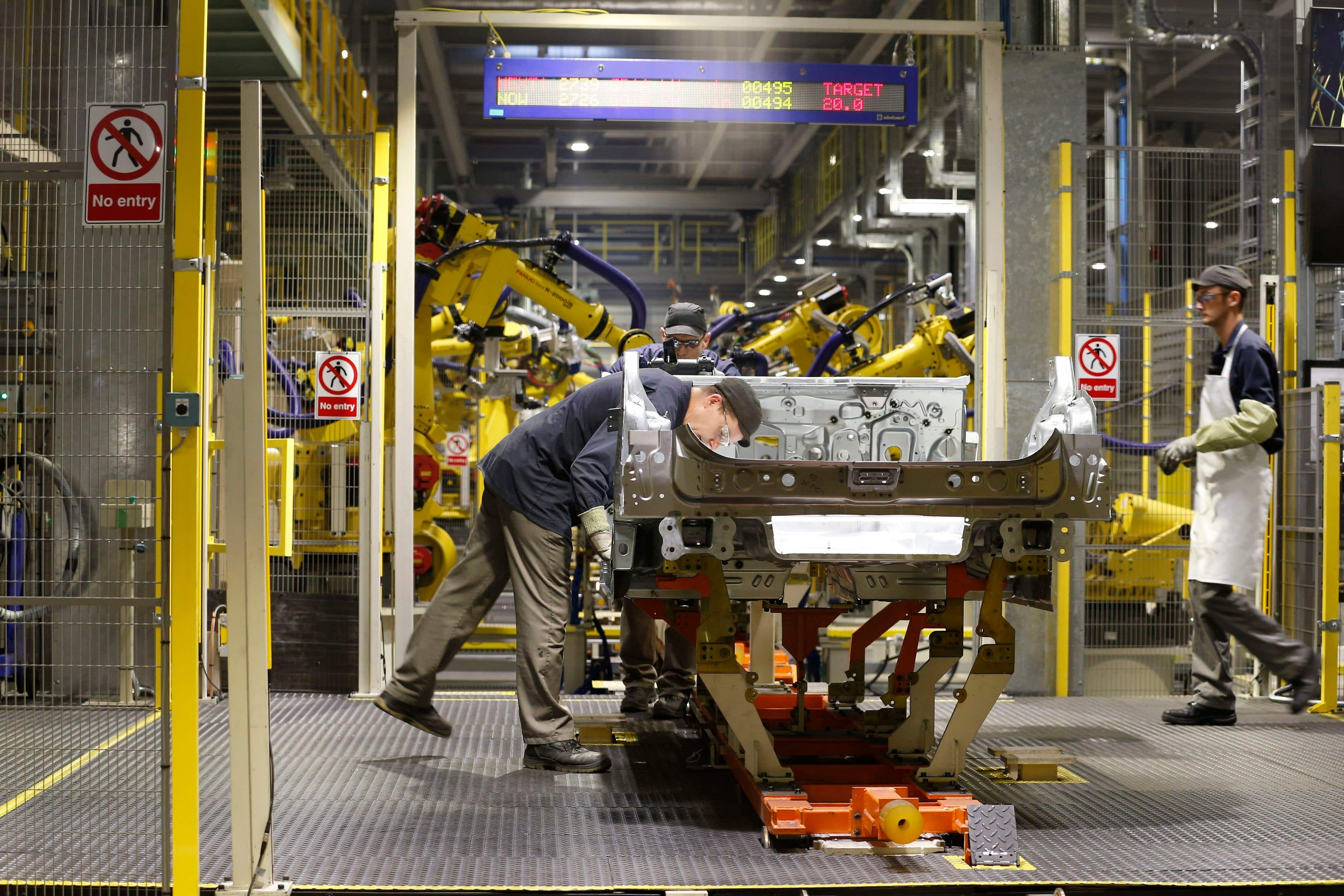Recession fears grow as UK private sector suffers shock decline
A closely-followed economic survey recorded the first monthly decline since January as firms said they were impacted by higher interest rates.

Your support helps us to tell the story
From reproductive rights to climate change to Big Tech, The Independent is on the ground when the story is developing. Whether it's investigating the financials of Elon Musk's pro-Trump PAC or producing our latest documentary, 'The A Word', which shines a light on the American women fighting for reproductive rights, we know how important it is to parse out the facts from the messaging.
At such a critical moment in US history, we need reporters on the ground. Your donation allows us to keep sending journalists to speak to both sides of the story.
The Independent is trusted by Americans across the entire political spectrum. And unlike many other quality news outlets, we choose not to lock Americans out of our reporting and analysis with paywalls. We believe quality journalism should be available to everyone, paid for by those who can afford it.
Your support makes all the difference.The UK’s private sector suffered a shock downturn in August on the back of lower new orders and higher borrowing costs, ratcheting concerns the economy could enter a recession later this year.
It represented the first monthly decline since January as firms were struck hard by recent hikes to interest rates, which have risen to a 15-year high of 5.25%.
The closely followed S&P Global/CIPS flash UK purchasing managers’ index (PMI) fell to 47.9 in August, down from 50.8 in July.
It was the lowest reading for around two-and-a-half years.
Any reading above 50 is considered to show the sector is growing, while anything below represents a contraction.
The figure was significantly below expectations, following a consensus among economists of a 50.3 reading for the month.
The pound slipped in value against the dollar in response to the data.
Experts warned that the data could show an increased risk of recession due to efforts to tackle rampant inflation by increasing interest rates.
Chris Williamson, chief business economist at S&P Global Market Intelligence, said: “The early PMI survey for August suggests that inflation should moderate further in the months ahead, but also indicates that the fight against inflation is carrying a heavy cost in terms of heightened recession risks.
“A renewed contraction of the economy already looks inevitable, as an increasingly severe manufacturing downturn is accompanied by a further faltering of the service sector’s spring revival.
“The survey is indicative of GDP declining by 0.2% over the third quarter so far.”
A technical recession is typically defined as two consecutive quarters of decline.
The survey pointed towards shrinking activity in both the manufacturing and services sectors.
The services industry had been a particular driver of growth in recent months but reported its joint-fastest slump in output for 31 months.
Meanwhile, the flash manufacturing industry reading was 42.5, the weakest for 39 months, due to a “sharp and accelerated fall in production volumes”.
Across all industries, new orders fell for the second consecutive month as surveyed firms “cited a reluctance to spend among clients in the wake of higher interest rates and stretched disposable household incomes”.
John Glen, CIPS (Chartered Institute of Procurement and Supply) chief economist, said: “This reduction in activity has provided UK supply chains with much-needed respite after the instability of the last two years.
“High interest rates are starting to have their intended effect of dampening demand and reducing inflationary pressures, leading to moderated input costs and reduced raw material prices for manufacturers.”
Martin Beck, chief economic advisor to the EY Item Club, said: “This combination of a slowdown in both activity and inflation should give the Bank of England food for thought in advance of its next interest rate decision in September and suggests an increase is no longer a certainty.
“On balance, the EY Item Club thinks the latest survey findings may not be enough to deter the Bank of England from raising interest rates again, given recent developments in pay and services inflation.
“But they do reinforce the expectation that a rate rise next month, if it happens, will likely be the last in the current cycle.”